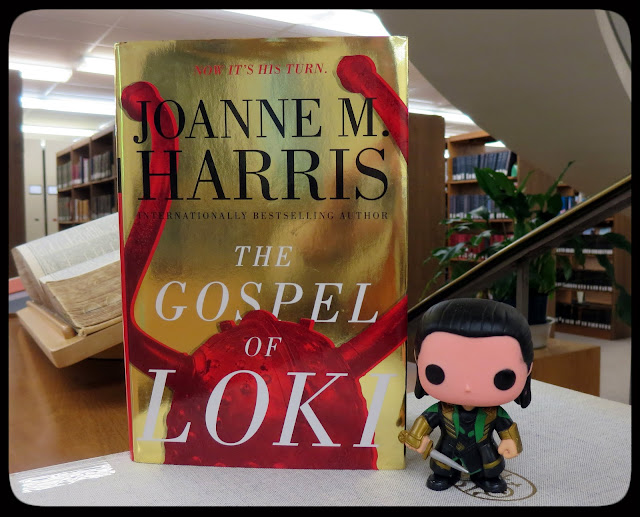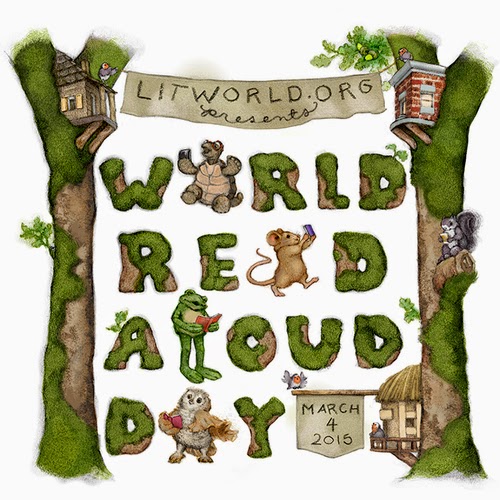Mythologizing July
For July, we're going to take a look at modern mythology - a special type of retold tale! Retold tales in general are a neat genre - they take familiar and important stories, ones that have already had a great deal of impact on our lives, and twist them up a bit. By introducing new themes and sometimes controversial ideas into a familiar setting, the author can lead the reader to new perspectives and a chance to reevaluate our own long-held beliefs and cherished traditions in someone else's context. A comfortable story made discomforting can be a powerful thing. Mythology retold is especially interesting - we can see the gods wrestling with the same issues we face, and learn to look at each other differently.
This month's Main Read was chosen by Loki - he thinks it's about time someone heard his side of events. Check it out:
This month's Main Read was chosen by Loki - he thinks it's about time someone heard his side of events. Check it out:
I know a tale, O sons of earth.
I speak it as I must.
Of how nine trees gave life to Worlds
That giants held in trust.
Okay. Stop. Stop right there.
That was the Authorized Version. The "Prophecy of the Oracle," as told to Odin Allfather by the Head of Mimir the Wise, and dealing, in thirty-six stanzas, with all of the history of the Nine Worlds, from "Let there be light" to Ragnarok.
Pretty neat, don't you think?
Well, this isn't the Authorized Version. This is my version of events.
Norse mythology paints Loki as a vindictive, capricious, malicious trickster - The Trickster, in fact - who will be a key player in the end of the world, just as soon as he escapes from imprisonment. That, according to the eponymous narrator of The Gospel of Loki by Joanne Harris, is a very biased interpretation of events. Loki is determined to set the record straight.
The Loki of Harris's novel is just as articulate and devious as you'd expect from the Trickster, and the story is very faithful to the original myths, while the characters themselves are more like us than many would care to admit. From scheming Odin, locked in his tower talking to prophesying heads; to vain Freyja, who would do anything for a pretty necklace; to darkly ambitious Heidi, a demon Loki can't help but admire. We are all, at least in part, shaped not only by our own inner nature but by the actions and opinions of others, as well. What makes a villain? What makes a god? And - most importantly - who do you trust?
Highly recommended for those who love fairy tales and mythologies retold but want a bit more than YA and/or romance can offer; especially recommended for those who enjoyed John Gardner's Grendel.
The Loki of Harris's novel is just as articulate and devious as you'd expect from the Trickster, and the story is very faithful to the original myths, while the characters themselves are more like us than many would care to admit. From scheming Odin, locked in his tower talking to prophesying heads; to vain Freyja, who would do anything for a pretty necklace; to darkly ambitious Heidi, a demon Loki can't help but admire. We are all, at least in part, shaped not only by our own inner nature but by the actions and opinions of others, as well. What makes a villain? What makes a god? And - most importantly - who do you trust?
Highly recommended for those who love fairy tales and mythologies retold but want a bit more than YA and/or romance can offer; especially recommended for those who enjoyed John Gardner's Grendel.
_________________________________________________________________________________
Loki also recommends this Quick Read, although he wishes its Trickster had a larger role in events, for July:
A rival of mine once complained that my stories begin awkwardly and end untidily. I am willing to admit to many faults, but I will not burden my conscience with that one. All my tales are true, drawn from life, and a life story is not a tidy thing. It is a half-tames horse that you seize on the run and ride with knees and teeth clenched, and then you regretfully slip off as gently and safely as you can, always wondering if you could have gone a few metres more.
Thus I seize this tale, starting with a hot afternoon in the town of Erria, a dusty side street near the financial quarter. But I will make one concession to tradition...
...Once upon a time - but whether a time that was, or a time that is, or a time that is to come, I may not tell - there was a man, a tracker by occupation, called Kwame.
Paama is an amazing cook; her husband is a ravenous glutton. It seems like the perfect marriage, but Paama left Ansige years ago. When he comes looking for her, she has to get him out of his foolish trouble, which attracts the attention of the djombi. They give her the Chaos Stick, so that she gains great powers - and the attention of a very angry spirit.
The first part of Redemption in Indigo by Karen Lord is based on an old Senegalese folk tale, and is humorously charming; the rest of the story is told with the same flair, but is a much more serious exploration of power, duty, and redemption. The narrator is a storyteller, and the entire book feels more like a tale told aloud - lots of energy, bits of wit, and characters you'll come to love very quickly. Highly recommended for anyone who likes a good story! Especially recommended for those who liked Chocolat and Like Water for Chocolate.
Have a question about modern mythology? Looking for a different take on an old story? Let me know, and I'll pass the request on to Loki, when he's got a moment free from planning Ragnarok.
Happy reading, everyone, and we'll see you back next month for more reading recommendations from my Readers Advisory Committee!
The first part of Redemption in Indigo by Karen Lord is based on an old Senegalese folk tale, and is humorously charming; the rest of the story is told with the same flair, but is a much more serious exploration of power, duty, and redemption. The narrator is a storyteller, and the entire book feels more like a tale told aloud - lots of energy, bits of wit, and characters you'll come to love very quickly. Highly recommended for anyone who likes a good story! Especially recommended for those who liked Chocolat and Like Water for Chocolate.
Have a question about modern mythology? Looking for a different take on an old story? Let me know, and I'll pass the request on to Loki, when he's got a moment free from planning Ragnarok.
Happy reading, everyone, and we'll see you back next month for more reading recommendations from my Readers Advisory Committee!




Comments
Post a Comment